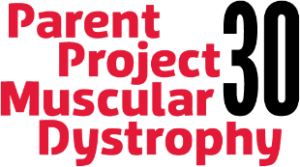Epilepsy is a neurological disorder marked by recurrent, unprovoked seizures due to abnormal electrical activity in the brain. These seizures can vary widely in form, ranging from brief lapses in attention or muscle jerks to severe and prolonged convulsions. Epilepsy can result from genetic factors, brain injury, stroke, tumors, infections, or developmental disorders, though in many cases, the exact cause remains unknown.
More than 50% of epilepsies have some genetic basis.
When a patient presents with seizures, genetic testing can help identify 100+ underlying genetic causes. Early genetic testing may be the most direct, cost-effective, and accurate diagnostic tool.1
Read more
Some genetic epilepsies are neurodegenerative, and may initially present with subtle, non-specific symptoms like language development delay and/or motor disturbance. Genetic testing may help identify the cause of epilepsy before a patient experiences the hallmark signs of regression.2
Read more
Genetic epilepsies may be hiding behind non-specific symptoms.
Language delay, motor disturbance, and intellectual impairment can proceed seizure onset and may be useful early indicators for molecular genetic testing.3,4
Gene panels increasingly help tailor your approach-more than 30 genes have been linked to disease management strategies. Identifying a seizure’s underlying etiology can enable more precise disease management strategies.5
What is the Program?
Genetic testing may bring you closer to understanding what’s causing your patient’s epilepsy, helping your patients and their caregivers benefit from deeper knowledge and timely care.
To be eligible for this program, patients in the US and Canada must meet the following criteria:
Any child under the age of 8 who has had an unprovoked seizure.

Collect your patient’s specimen using an Invitae collection kit and return it. Use the label provided to ship most samples at no additional charge from the US and Canada.

Founded in 1997, BioMarin is a global biotechnology Company dedicated to transforming lives through genetic discovery. The Company develops and commercializes targeted therapies that address the root cause of the genetic conditions. BioMarin’s unparalleled research and development capabilities have resulted in eight transformational commercial therapies for patients with rare genetic disorders. The Company’s distinctive approach to drug discovery has produced a diverse pipeline of commercial, clinical, and pre-clinical candidates that address a significant unmet medical need, have well-understood biology, and provide an opportunity to be first-to-market or offer a substantial benefit over existing treatment options. For additional information, please visit www.biomarin.com.

BRINEURA® (cerliponase alfa) is an enzyme replacement therapy developed by BioMarin Pharmaceutical Inc. for the treatment of late infantile neuronal ceroid lipofuscinosis type 2 (CLN2), a form of Batten disease. This rare, inherited disorder is caused by a deficiency of the enzyme tripeptidyl peptidase 1 (TPP1), leading to progressive neurological impairment. BRINEURA is administered directly into the cerebrospinal fluid via intraventricular infusion every two weeks. It is designed to slow the loss of walking ability in symptomatic pediatric patients aged 3 years and older. Clinical trials have demonstrated that BRINEURA can significantly delay disease progression, offering a crucial therapeutic option for affected children.
Founded in 1978, Biogen is a leading biotechnology company that pioneers innovative science to deliver new medicines to transform patients’ lives and to create value for shareholders and our communities. We apply deep understanding of human biology and leverage different modalities to advance first-in-class treatments or therapies that deliver superior outcomes. Our approach is to take bold risks, balanced with return on investment to deliver long-term growth.
The company routinely posts information that may be important to investors on its website at www.biogen.com. Follow Biogen on social media – Facebook, LinkedIn, X, YouTube.
Praxis Precision Medicines is a clinical-stage biopharmaceutical company translating insights from genetic epilepsies into the development of therapies for CNS disorders characterized by neuronal excitation-inhibition imbalance. Praxis is applying genetic insights to the discovery and development of therapies for rare and more prevalent neurological disorders through our proprietary small molecule platform, Cerebrum™, and antisense oligonucleotide (ASO) platform, Solidus™, using our understanding of shared biological targets and circuits in the brain. Praxis has established a diversified, multimodal CNS portfolio including multiple programs across movement disorders and epilepsy, with four clinical-stage product candidates. For more information, please visit www.praxismedicines.com and follow us on Facebook, LinkedIn and Twitter/X.

Stoke Therapeutics (Nasdaq: STOK), is a biotechnology company dedicated to addressing the underlying cause of severe diseases by upregulating protein expression with RNA-based medicines. Using Stoke’s proprietary TANGO (Targeted Augmentation of Nuclear Gene Output) approach, Stoke is developing antisense oligonucleotides (ASOs) to selectively restore protein levels. Stoke’s first compound, STK-001, is in clinical testing for the treatment of Dravet syndrome, a severe and progressive genetic epilepsy. Dravet syndrome is one of many diseases caused by a haploinsufficiency, in which a loss of ~50% of normal protein levels leads to disease. Stoke is pursuing the development of STK-002 for the treatment of autosomal dominant optic atrophy (ADOA), the most common inherited optic nerve disorder. Stoke’s initial focus is haploinsufficiencies and diseases of the central nervous system and the eye, although proof of concept has been demonstrated in other organs, tissues, and systems, supporting its belief in the broad potential for its proprietary approach. Stoke is headquartered in Bedford, Massachusetts with offices in Cambridge, Massachusetts. For more information, visit https://www.stoketherapeutics.com/.
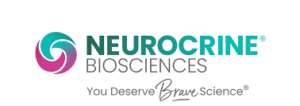
Neurocrine Biosciences is a leading neuroscience-focused, biopharmaceutical company with a simple purpose: to relieve suffering for people with great needs, but few options. We are dedicated to discovering and developing life-changing treatments for patients with under-addressed neurological, neuroendocrine and neuropsychiatric disorders. The company’s diverse portfolio includes FDA-approved treatments for tardive dyskinesia, chorea associated with Huntington’s disease, endometriosis* and uterine fibroids*, as well as a robust pipeline including multiple compounds in mid- to late-phase clinical development across our core therapeutic areas. For three decades, we have applied our unique insight into neuroscience and the interconnections between brain and body systems to treat complex conditions. We relentlessly pursue medicines to ease the burden of debilitating diseases and disorders, because you deserve brave science. For more information, visit neurocrine.com, and follow the company on LinkedIn, X (formerly Twitter), and Facebook.
1. Pal DK, et al. Genetic evaluation and counseling for epilepsy. Nat Rev Neurol. 2010;6:445-453.
2. Amadori E, Scala M, Cereda GS, et al. Targeted re-sequencing for early diagnosis of genetic causes of childhood epilepsy: the Italian experience from the ‘beyond epilepsy’ project. Ital J Pediatr. 2020;46(1):92. Published 2020 Jul 6. doi:10.1186/s13052-020-00860-1
3. Specchio N, Pietrafusa N, Trivisano M. Changing Times for CLN2 Disease: The Era of Enzyme Replacement Therapy. Ther Clin Risk Manag. 2020 Mar 30;16:213-222. doi: 10.2147/TCRM.S241048. PMID: 32280231; PMCID: PMC7127909.. 2016 Aug;12(8):465-76.
4. Kaur S, Christodoulou J. MECP2 Disorders. 2001 Oct 3 [updated 2019 Sep 19]. In: Adam MP, Ardinger HH, Pagon RA, Wallace SE, Bean LJH, Stephens K, Amemiya A, editors. GeneReviews® [Internet]. Seattle (WA): University of Washington, Seattle; 1993–2020. PMID: 20301670.. 2016 Aug;12(8):465-76.
5. Truty R et al. Possible precision medicine implications from genetic testing using combined detection of sequence and intragenic copy number variants in a large cohort with childhood epilepsy. Epilepsia Open. 2019;10:28.
